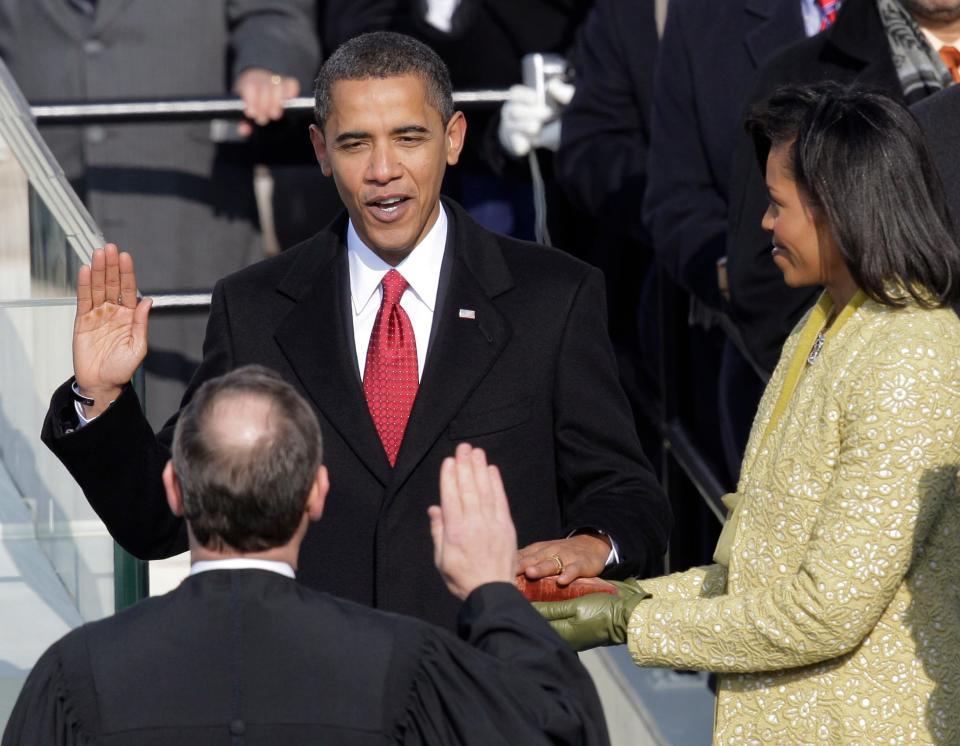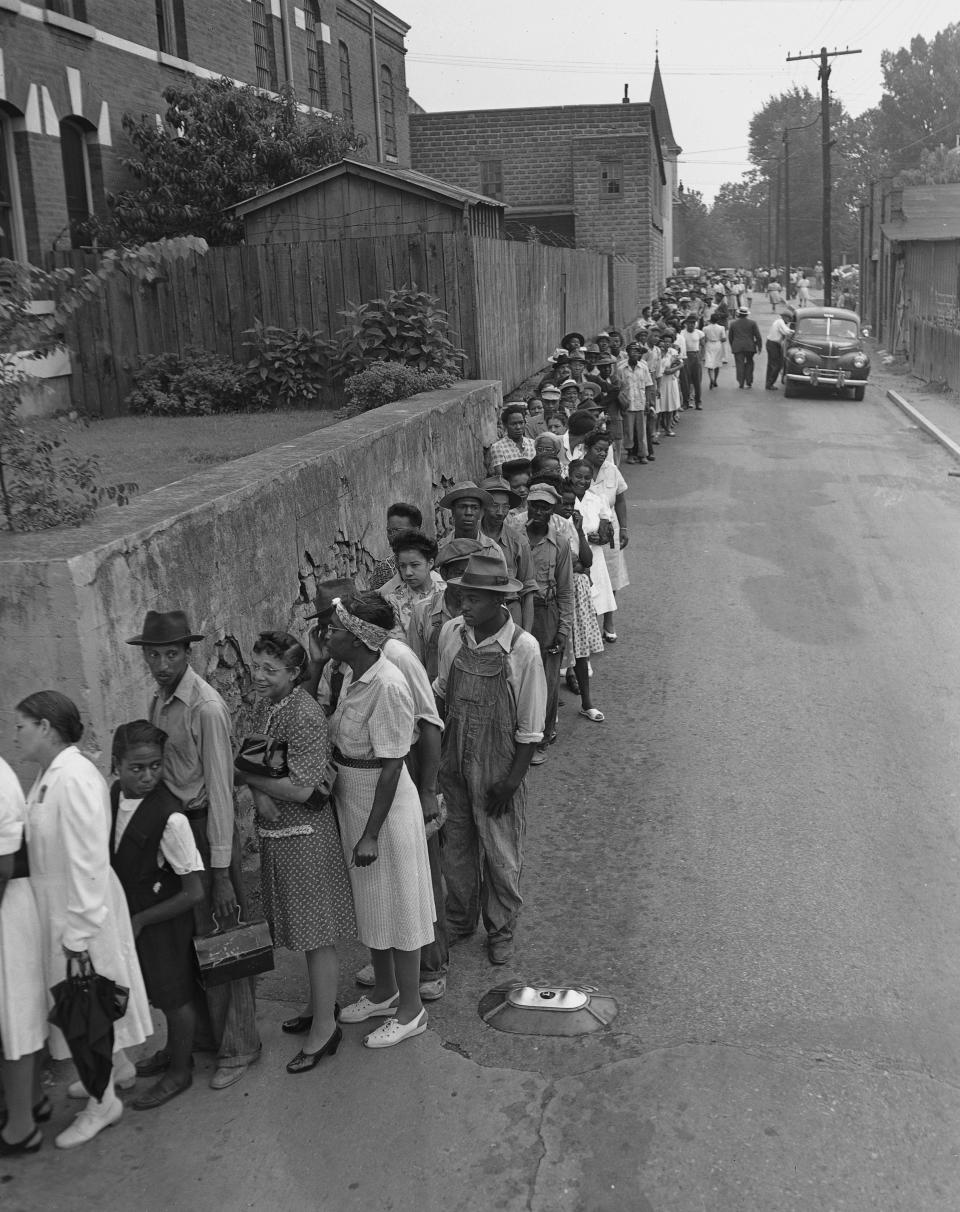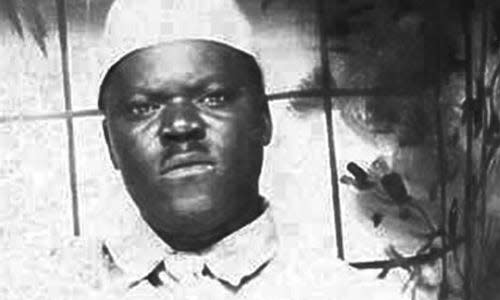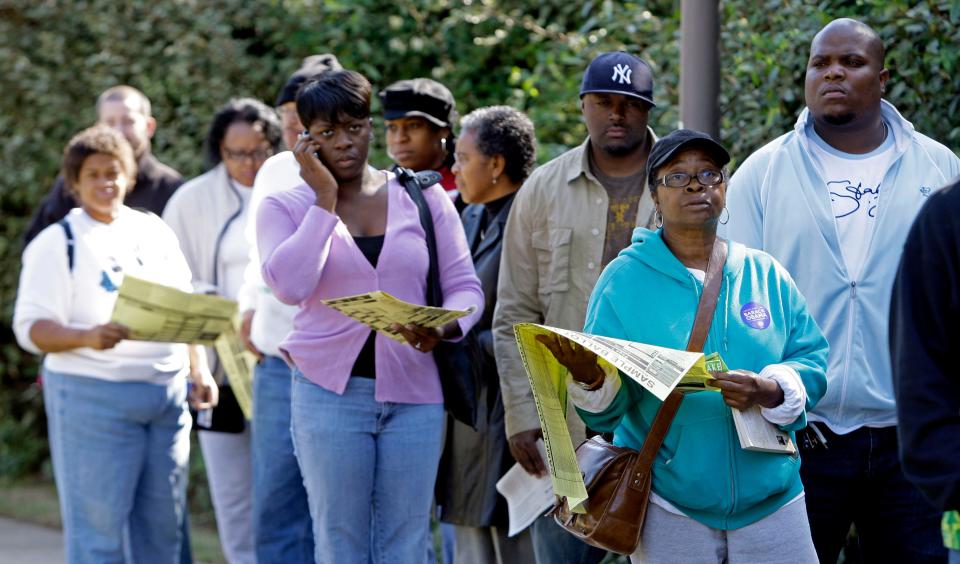Learn from U.S. history — the Black vote matters. So show up at the polls in May.
Happy Mother’s Day to all Mothers!
Although today is Mother’s Day, May is also the month for our local primary election. That’s what I’m focusing on today.
Everyone loves a good story – and certainly the United States has some good stories to tell. Our stories include introducing the airplane in 1903, making the automobile affordable in 1908 through mass production of the Model T Ford, giving the world the internet in the 1960s and the cell phone in 1973. And certainly, the U.S. gets kudos for being the first country to accomplish a moon landing!
Black Americans have good celebratory U.S. stories, too. In 1967, Thurgood Marshall became the first African-American Supreme Court Justice. One year later, in 1968, Shirley Chisholm became the first Black woman elected to the U.S. Congress. And, 40 years after that, Barack Obama became the first Black man to be elected as President.
More from Maxine L. Bryant: We must continue the lead of others and teach Africa's Story to those in Savannah and beyond
Also: Women's History Month: Patt Gunn latest in line of history-making Black Savannah women
And: Five Savannah couples celebrate many years of marriage and power of Black love this February

Four years ago, Georgia witnessed Stacey Abrams become the first Black female to run for governor, and in 2021, local Savannahian Raphael Warnock became the first Black Georgia U.S. Senator.
Currently, we celebrate Kamala Harris as the first female and first Black/Asian U.S. Vice President and Ketanji Brown Jackson as the first Black female Supreme Court Justice. Those are indeed all good stories, and we are living in their silver lining.
One constant challenge, despite all of these good stories, involves the right to vote.
The history of Black Americans exercising their right to vote
The story of the United States is continually being written and the narrative of justice, in large part, depends on the votes of the citizenry. The basic right to vote has been and remains to be very difficult for many Black Americans to exercise. The 15th Amendment could be viewed as a type of Voting Rights Act in that it gave African American men the right to vote.
However, 27 years after that Amendment was ratified, many Southern states passed “grandfather clauses” designed to keep former slaves and their descendants from voting. By the 1940s, only 3% of eligible Black American voters in the South were registered to vote due to Jim Crow laws such as literacy tests and poll taxes.

In the past, Blacks recognized the value of their vote and were willing to risk their lives to exercise and protect that right.
In 1867, Joshua C. Legree was among the first Black men to register to vote in Lowcountry, Georgia, under the 1867 Reconstruction Act. During that time, Lowcountry was a five-county region that extended from Savannah to St. Mary’s and served as the hub for Black social, political, and economic activism. For 40 years, Legree consistently paid poll taxes to retain his voting rights and remained politically active. He recognized that the Black vote matters.
In 1877, Georgia legislators passed a state constitution that disenfranchised all persons who owed city taxes levied since 1876. That act significantly disenfranchised Black voters. Undeterred, Legree remained committed to the struggle for Black voter enfranchisement. In 1898, he was elected as the first mayor of Burroughs, Georgia. The Black vote matters.

In 1946, a Black man named Maceo Snipes, decided to exercise his right to vote. Prior to 1946, Blacks could vote in Georgia’s general election, but not the primary. That year federal courts struck down whites-only primaries. All eyes were on Georgia.
Two-term former Governor Eugene Talmadge was facing challenger James V. Carmichael. Talmadge had vowed to reinstate the all-white primary in Georgia. Maceo took a bold step to become the first Black American to cast a vote in the first election held without the statewide ban on Black voting. He cast his vote in Taylor County. The next day he was shot in the back by one of four white men.
Recent voting legislation: First Jim Crow. Now SB 202. In Georgia, voter suppression has always been a concern for Black voters
Two days later, Snipes died from his injuries. His vote literally cost him his life. Why was he murdered? Perhaps, because white supremist understood that the Black vote matters.
Voter suppression has continued into modern U.S. history
The disenfranchisement of Black Americans from the vote continued to be a norm in the United States.
The Voting Rights Act of 1965 was drafted to outlaw Jim Crow practices that deprived Blacks the right to vote in many Southern states. Specifically, jurisdictions with a history of voter discrimination were mandated to get federal approval for changes in their election laws before putting such laws into effect. This was called the Section 5 preclearance requirement of the 1965 Voting Rights Act.
What to know: How to early vote in Chatham County for the May 2022 election
Georgia was one of the six states included in the original preclearance requirement.
In 2010, the U.S. Supreme Court found Section 5 of the Voting Rights Act unconstitutional because it violated principles of the 10th Amendment that pertained to state autonomy and Article Four of the Constitution which guarantees self-government of each state. Since then, the attack on the Black vote has increased with intensity.

At least 34 states have restricted voter ID laws which make voting more difficult, especially for persons of color. Many states moved polling locations to places not easily accessible or significantly reduced early voting time frames.
And, don’t forget that in 2014 the New Georgia Project identified 40,000 alleged missing voter registrations, most of whom were Black and Latino. These actions were taken to suppress and silence the Black vote. Our response should be our determination to cast our vote. The Black vote matters.
Absentee ballot to early voting dates: What to know about Georgia voting laws for the 2022 election
According to Stacker (2021), Blacks comprise more than 30% of Georgia’s registered voters. Chatham County is one of the top five counties in Georgia in terms of registered voters; thus, voters in our county play a large role in determining who wins state elections. The Black vote matters.
Suppressing votes is a form of voter disenfranchisement. While disenfranchisement has significantly impacted Blacks, formerly incarcerated individuals are impacted all the more. And, since a higher percentage of Blacks fall into the category of being formerly incarcerate, the silencing of their votes creates a significant void.
It is important to note that persons with criminal histories who are no longer on parole or probation can vote in Georgia. The Black vote matters.
Political scientist: Are GOP states more likely to reject mail-in or absentee ballots?
This is an election year, and as in the past, many eyes are watching Georgia.
On Tuesday, May 24, citizens throughout Georgia will be able to cast their votes in the Georgia Primary. It is vital that all registered voters exercise their right to vote in the Georgia primary election.
This May, it is critical that all registered Black voters exercise their right to have their voices heard. Why? The Black vote matters.
Maxine L. Bryant, Ph.D., is a contributing lifestyles columnist. She is an assistant professor, Department of Criminal Justice & Criminology; director, Center for Africana Studies, and director, Gullah Geechee Cultural Heritage Center at Georgia Southern University, Armstrong Campus. Contact her at 912-344-3602 or email dr.maxinebryant@gmail.com. See more columns by her at SavannahNow.com/lifestyle/
This article originally appeared on Savannah Morning News: History of voting rights for African Americans in US

